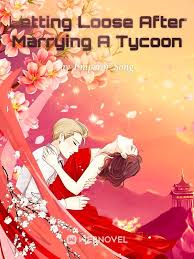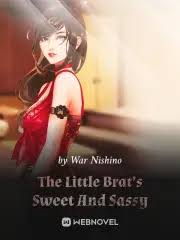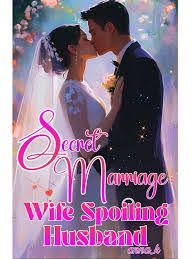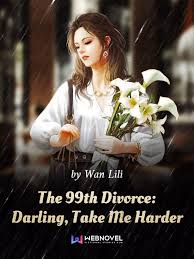The Story in 3 Sentences
After a decade trapped in a loveless, abusive marriage with Vincent Gray, Chloe Carlson finally files for divorce and walks away with nothing but her daughter Mackenzie, determined to rebuild her life on her own terms.
Desperate for stability and unable to find work as an unqualified housewife, she turns to her younger, dangerously charismatic brother-in-law Vernon Phoenix Gray, who offers her a job laced with seduction and ambiguous intentions.
What begins as a transactional arrangement slowly unravels into a complex emotional battlefield where Chloe must navigate custody threats, societal judgment, and her own healing while caught between two men who represent different forms of control.
Why It Stands Out
1. A Mirror to Real-World Struggles
Divorced My Scum Husband, Married His Evil Brother resonates because it doesn’t glamorize survival—it shows the raw, unfiltered reality of a single mother with no safety net. Chloe’s refusal to take Vincent’s money isn’t noble idealism; it’s a quiet rebellion against being defined by his wealth or his abuse. This grounded portrayal of financial desperation, custody insecurity, and emotional exhaustion speaks directly to readers who’ve faced similar crossroads.
2. The “Evil” Brother Subversion
Vernon Phoenix Gray isn’t your typical redemption arc hero. Introduced as a smirking, predatory playboy CEO who whispers innuendos into Chloe’s ear, he defies easy categorization. Unlike the overt cruelty of Vincent, Vernon’s danger is wrapped in charm, power, and emotional ambiguity. The story toys with the reader’s discomfort—can someone who begins as a potential predator evolve into a genuine partner? That tension fuels much of the novel’s addictive pull.
3. Unflinching Focus on Female Agency
While many urban dramas lean into fantasy or wish-fulfillment, this novel insists on Chloe’s autonomy—even when it’s messy. She makes questionable choices, second-guesses herself, and sometimes stumbles backward, but she never surrenders her right to decide. The narrative doesn’t reward her with instant success or a white knight; instead, it charts a slow, painful climb toward self-worth, making her eventual stability feel earned rather than handed to her.
Characters That Leave a Mark
There’s Vincent Gray – the archetypal toxic ex whose charm curdled into entitlement, convinced that Chloe’s desire for freedom is just a ploy to steal his wealth, and who weaponizes fatherhood to maintain control long after the marriage ends.
You’ll meet Mackenzie, who despite her young age becomes the emotional anchor of the story—her innocence and resilience constantly remind Chloe why she must keep fighting, even when hope feels thin.
And Vernon Phoenix Gray? They’re the one who blurs every line between threat and salvation, offering Chloe shelter while demanding emotional access she isn’t sure she can give, all while hiding layers of his own past beneath a veneer of ruthless confidence.
The Flaws Fans Debate
Many readers criticize the novel’s extreme pacing issues, noting that key developments are stretched across hundreds of chapters filled with repetitive internal monologues and recycled confrontations.
Some argue that Chloe’s suffering borders on gratuitous, with emotional abuse from multiple characters continuing far beyond narrative necessity, turning empowerment into endurance theater.
Others point out inconsistent character logic—Vincent’s motivations shift erratically, and Vernon’s “evil” persona sometimes softens without sufficient buildup, making emotional payoffs feel unearned.
Must-Experience Arcs
Ch. 1–25: The Breaking Point – Chloe endures Vincent’s infidelity and emotional neglect before finally filing for divorce, only to face his refusal to sign and his cruel accusations about her motives, setting the stage for her departure with Mackenzie.
Ch. 180–220: The Assistant Gambit – Desperate and jobless, Chloe approaches Vernon for help and accepts his offer to become his personal assistant, entering a high-stakes arrangement where every interaction is charged with power imbalance and unspoken desire.
Ch. 700–750: Custody Crossfire – After years of legal and emotional warfare, Vincent escalates his campaign to take Mackenzie, forcing Chloe and Vernon into an uneasy alliance that tests their fragile trust and finally pushes Chloe to assert her legal and maternal rights decisively.
Killer Quotes
“I can’t stay like this forever. I will go crazy if I let him torment me with his bullshit.”
“The huge mistake I made was marrying you ten years ago, Vincent Gray.”
“You can be my personal assistant, Sister-in-law. Taking care of all my daily needs,” Vernon whispered like the devil in her ear.
Cultural Impact
The novel became a talking point in online spaces focused on mature female-led romance, with readers praising its unvarnished take on post-divorce motherhood.
Fans frequently share memes contrasting “Vincent energy” (toxic, possessive) with “Vernon energy” (dangerous but protective), turning the brothers into archetypes within the genre.
Its WSA 2022 nomination and consistent 4.5+ rating on Webnovel highlight its popularity despite structural criticisms, proving that emotional authenticity often outweighs technical flaws for its audience.
Final Verdict
Start Here If You Want:
A raw, emotionally intense drama about a woman reclaiming her life after betrayal, even if the path is messy and non-linear.
A romance that thrives on tension, ambiguity, and slow-burn transformation rather than instant chemistry or fairytale resolutions.
A story that centers a mother’s love as both vulnerability and strength, refusing to sideline her child for the sake of adult drama.
Study If You Love:
Narratives that explore the socioeconomic realities of single motherhood in urban settings, especially when institutional support fails.
The psychological complexity of “villain love interests” and how power dynamics can evolve—or collapse—in relationships born from desperation.
Contemporary josei fiction that prioritizes internal growth over external validation, even when the pacing falters.
Avoid If You Prefer:
Fast-paced plots with clear, consistent character arcs and minimal repetition.
Stories where the female lead avoids prolonged emotional suffering or where antagonists have coherent, stable motivations.
Romances that steer clear of morally gray or potentially predatory beginnings, even if they later shift toward mutual respect.





